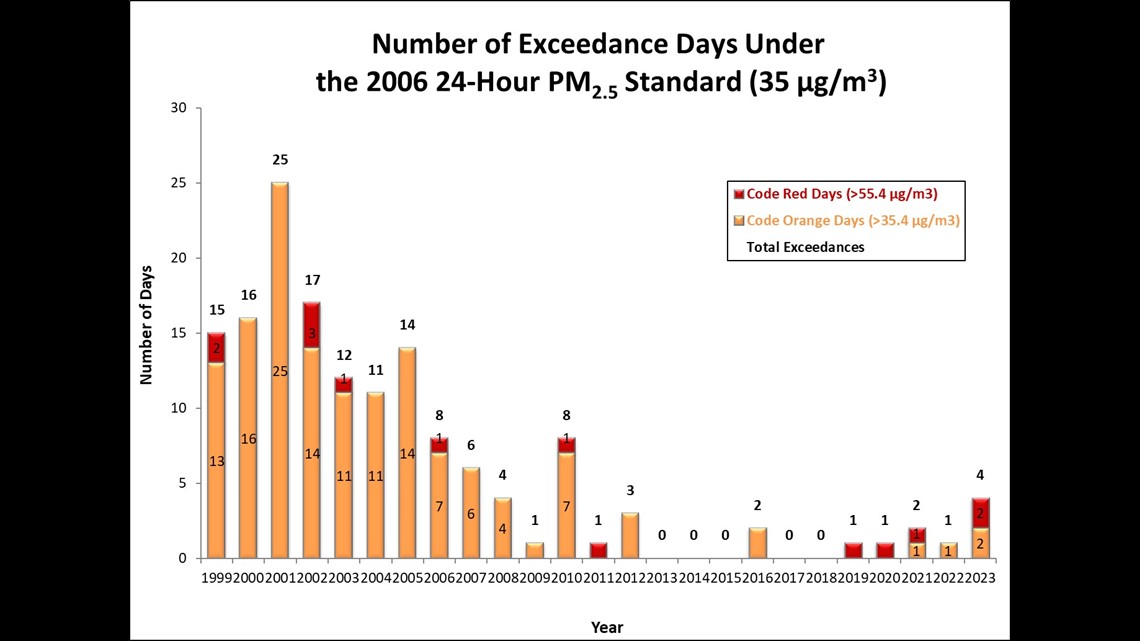Poor air quality is not unfamiliar to many District residents, but the recent smoky skies are unlike anything the DMV has seen in many years.
WASHINGTON — The Washington, D.C. area was under a Code Red on Thursday for poor air quality. The sky had a thick haze for much of the day because of smoke from continued wildfires in Canada, the second such occurrence in June.
Some people complained on social media about getting used to the smoky conditions, going so far as to say, "this is our life now."
QUESTION
Is 2023 an unusually bad year for air quality in Washington, D.C.?
SOURCES
ANSWER
![]()
Yes, by one measure, this is already the worst year for air quality in more than a decade.
WHAT WE FOUND
This may feel like life in the DMV for some people, but the extreme air quality concerns in June are unique in the region's recent history.
According to Clean Air Partners, a public-private partnership overseen by municipal leaders from Washington, D.C. and Baltimore, there have been two Code Red days in Washington, D.C. this month, compared to three total in the previous decade.
Code Red signifies that the air is unhealthy and outdoor activity should be limited. It can be prompted either by high ozone levels (most often observed during hot summer days) or high levels of particulate matter (wildfire smoke, among other forms of pollution, contains particulate matter).
Steve Kania, the communications director for the Washington Metropolitan Council of Government (WMCOG), told WUSA9 that the Code Red days in 2019, 2020, and 2021 were July 4 and related to the smoke from fireworks displays around the region.
Historical data provided by WMCOG shows a steep drop in the number of Code Orange days these last 10 years as well. Code Orange is less severe than Code Red and means the air may be dangerous to sensitive groups.


Kania said the reduction is the result of policies and regulations designed to protect our atmosphere, whether related to power plant and vehicle emissions, energy efficiency in electronics and construction, or renewable energy use.
While the number of Code Red and Code Orange days does not compare to the 2000's and before, given the great air quality the Washington, D.C. area has enjoyed for the last decade, smoke-filled days like the ones we have experienced this month stand out.
.png)









 English (US) ·
English (US) ·